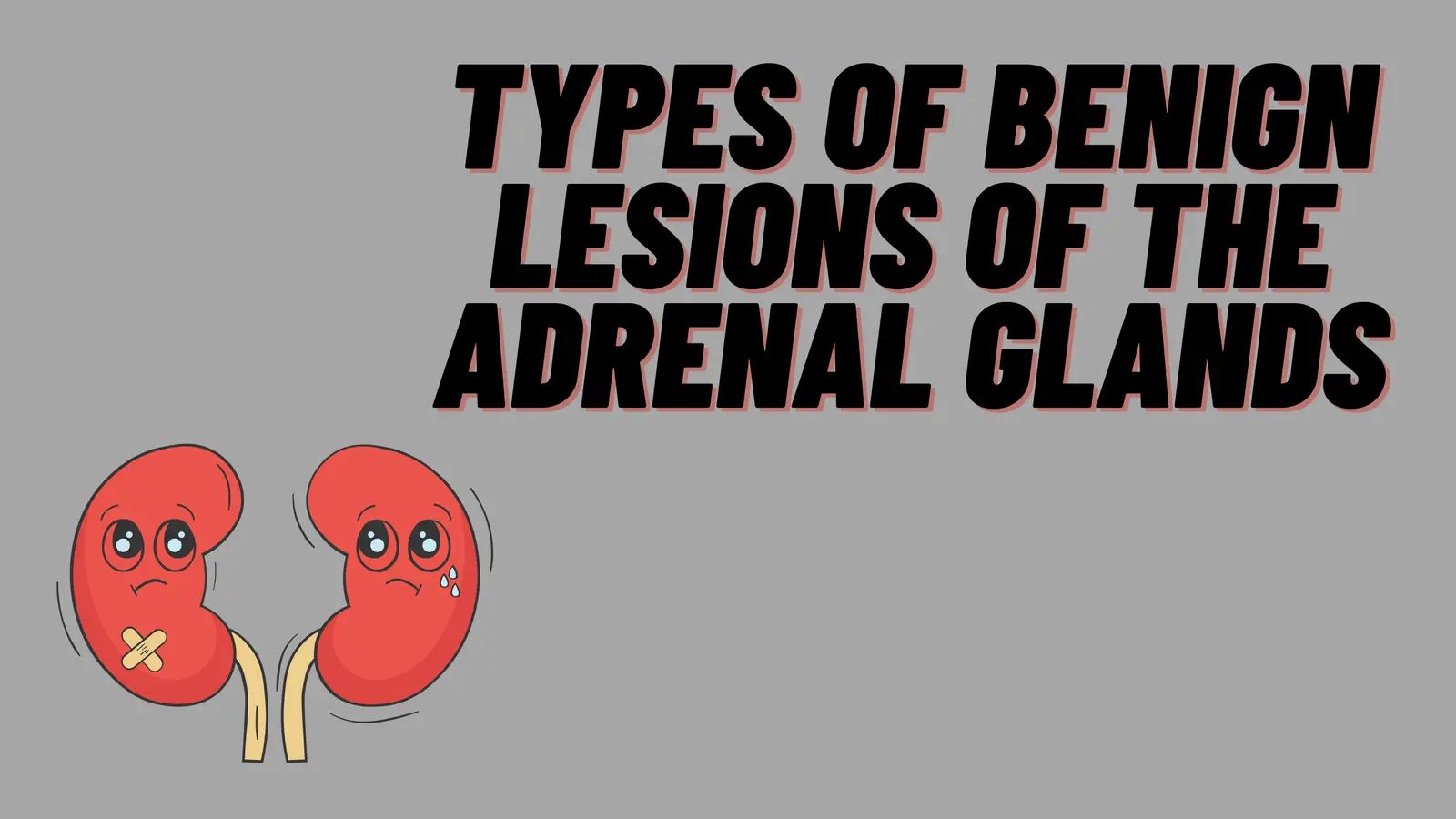Benign Lesions of the Adrenal Glands
Houston Endocrine Center2023-03-13T16:15:52+00:00
The adrenal glands are triangular-shaped. Small glands located on top of the kidneys. They play a crucial role in producing hormones that help regulate various bodily processes, such as blood pressure, metabolism, and stress response. While the adrenal glands are essential for optimal health, they can also develop benign lesions and non-cancerous growths that can arise in different parts of the gland. This blog will discuss benign lesions of the adrenal glands, their types, symptoms, diagnosis, and treatment.
To understand more https://www.ncbi.nlm.nih.gov/pmc/articles/PMC9380426/
Types of Benign Lesions of the Adrenal Glands

The most common types of benign adrenal lesions include:
1. Adenomas:
Adenomas are the most frequent type of benign adrenal lesion. They are non-cancerous growths that develop in the gland’s cortex, the outer layer that produces hormones such as cortisol and aldosterone. Adenomas are usually small, measuring less than 4 cm in diameter, and often don’t cause symptoms. However, if they grow larger or start producing hormones, they can lead to hormonal imbalances and health problems.
2. Myelolipomas:
Myelolipomas are benign adrenal tumors that contain fat and bone marrow elements. They are rare, usually small, and asymptomatic. Most myelolipomas are discovered incidentally during imaging studies done for other reasons.
3. Cysts:
Adrenal cysts are fluid-filled sacs that develop in the gland. They are usually small and don’t cause any symptoms. However, if they grow larger, they can compress nearby structures and cause pain or discomfort.
4. Hematomas are blood collections that can develop in the adrenal gland after trauma or injury. They are usually self-limited and resolve independently without causing significant symptoms.
Symptoms of Benign Lesions of the Adrenal Glands

Most benign adrenal lesions are asymptomatic and don’t cause noticeable symptoms. However, some larger tumors or those that produce hormones can cause various symptoms, such as:
- High blood pressure
- Rapid heart rate
- Muscle weakness
- Fatigue
- Unexplained weight gain or loss
- Mood changes, such as irritability or anxiety
- Excessive sweating
- Abdominal pain or discomfort
- Back pain
- Headaches
Diagnosis of Benign Lesions of the Adrenal Glands

Benign adrenal lesions are often discovered incidentally during imaging studies for other reasons, such as abdominal CT scans, MRI scans, or ultrasound exams. If an adrenal lesion is suspected, the doctor may order further tests, such as:
- Blood tests: To check for hormonal imbalances or abnormal blood cell counts.
- Urine tests: To check for excess hormone production or other abnormalities.
- Biopsy: A small tissue sample may be taken from the adrenal gland for analysis to determine whether the lesion is benign or cancerous.
Treatment of Benign Lesions of the Adrenal Glands

Most benign adrenal lesions don’t require treatment, especially if they are small and asymptomatic. However, treatment may be necessary if the lesion grows larger or starts producing hormones. Treatment options may include:
- Surgery: The most common treatment for larger or symptomatic benign adrenal lesions is surgery, which involves removing the entire adrenal gland or just the affected portion.
- Medications: If the adrenal lesion produces excess hormones, medication may be prescribed to control hormone production and reduce symptoms.
- Monitoring: If the adrenal lesion is small and not causing any symptoms, the doctor may monitor it regularly with imaging tests to ensure it’s not growing or changing.
Conclusion
Benign lesions of the adrenal glands are non-cancerous growths that can arise in different parts of the gland, including adenomas, myelolipomas, cysts, and hematomas. While most benign adrenal lesions are asymptomatic and don’t require treatment, larger or symptomatic lesions may require surgery or medication. Regular monitoring with imaging tests is also essential for detecting changes or growth in the adrenal lesions. If you suspect you may have an adrenal lesion, it’s important to talk to your doctor to determine the best course of action.
Do you know What is the treatment for Osteogenesis Imperfecta?
